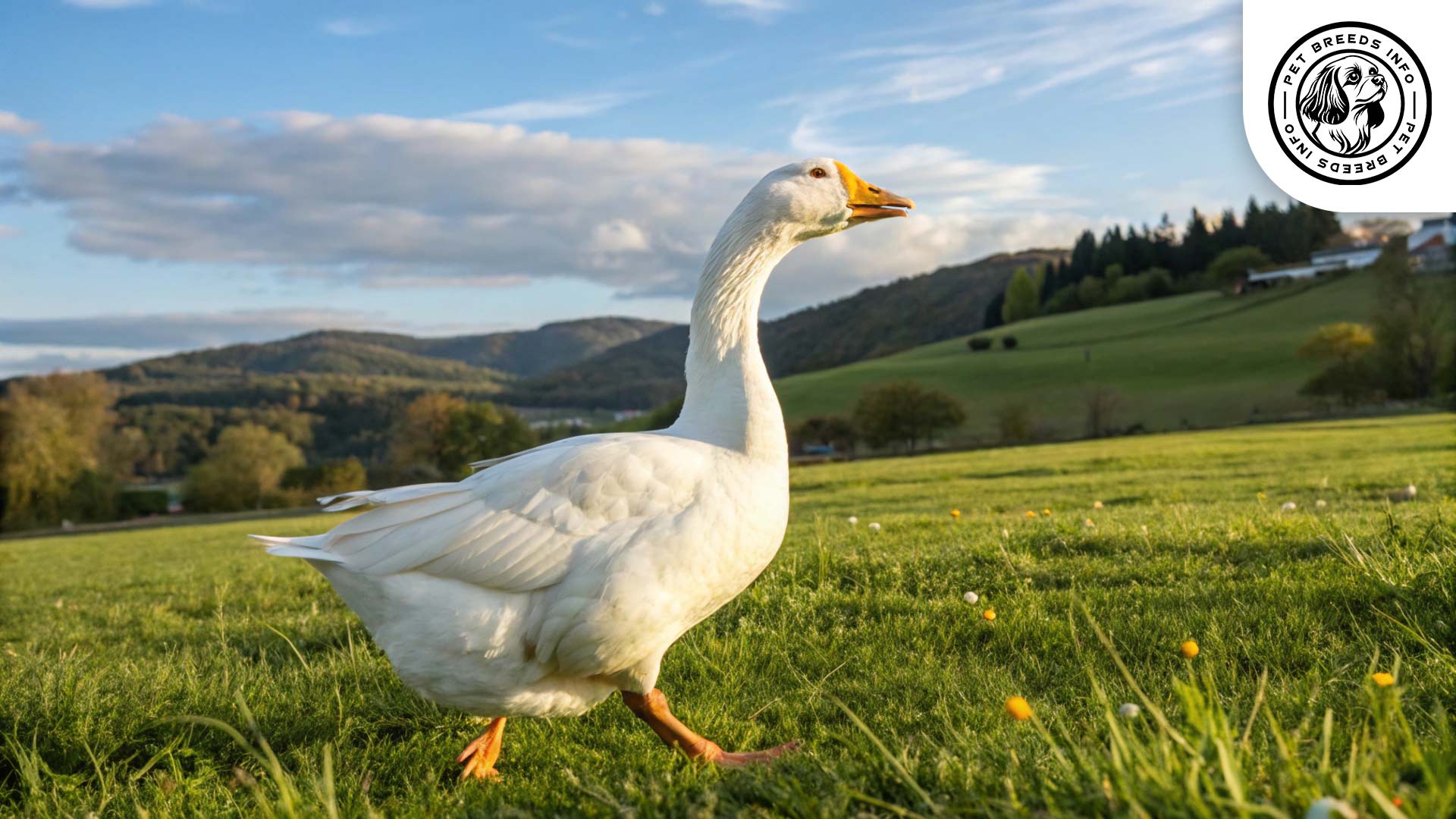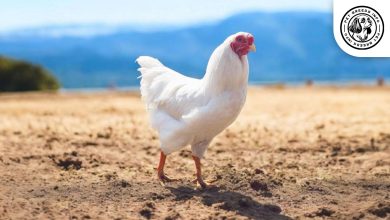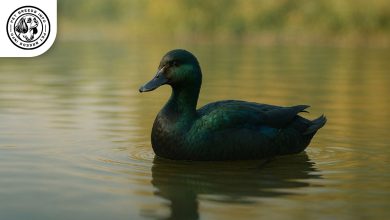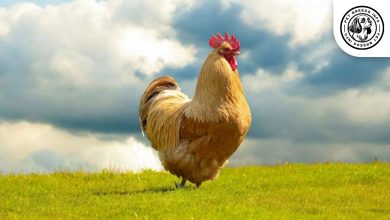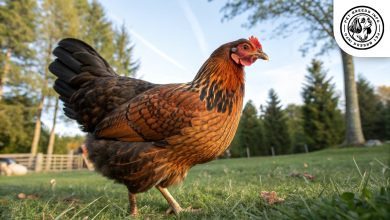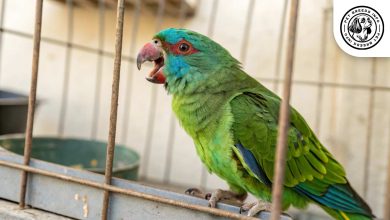Emden Goose Breed: Personality, Lifespan, Food & Care
General Introduction of the Breed
The Emden Goose, also known as Emdener Gans in German, is one of the most well-known and widely kept domestic geese. Originating in Germany and the Netherlands, this breed is prized for its large size, fast growth, and excellent meat quality.
The Emden Goose has a long history dating back to the 19th century. It is believed to have been developed in the town of Emden in Germany, as well as in parts of the Netherlands, through selective breeding of large white geese.
Table of Contents
| Common Name: | Emden Goose |
| Scientific Name: | Not explicitly mentioned in the text. |
| Origin: | Germany and the Netherlands |
| Size: | Males: 26 to 31 pounds (12 to 14 kg); Females: 20 to 24 pounds (9 to 11 kg) – Large breed |
| Lifespan: | 10 to 20 years |
| Talking Ability: | Not applicable (geese honk) |
| Colors: | Entirely white plumage |
| Noise Level: | Loud honking, can serve as good watchdogs. |
| Social Behavior: | Social, do well in flocks, form strong bonds with owners, can be wary of strangers. |
Physical Characteristics
The Emden Goose is a large and impressive breed. Males typically weigh between 26 to 31 pounds (12 to 14 kg), while females range from 20 to 24 pounds (9 to 11 kg). They have a tall and upright posture, which adds to their majestic appearance.
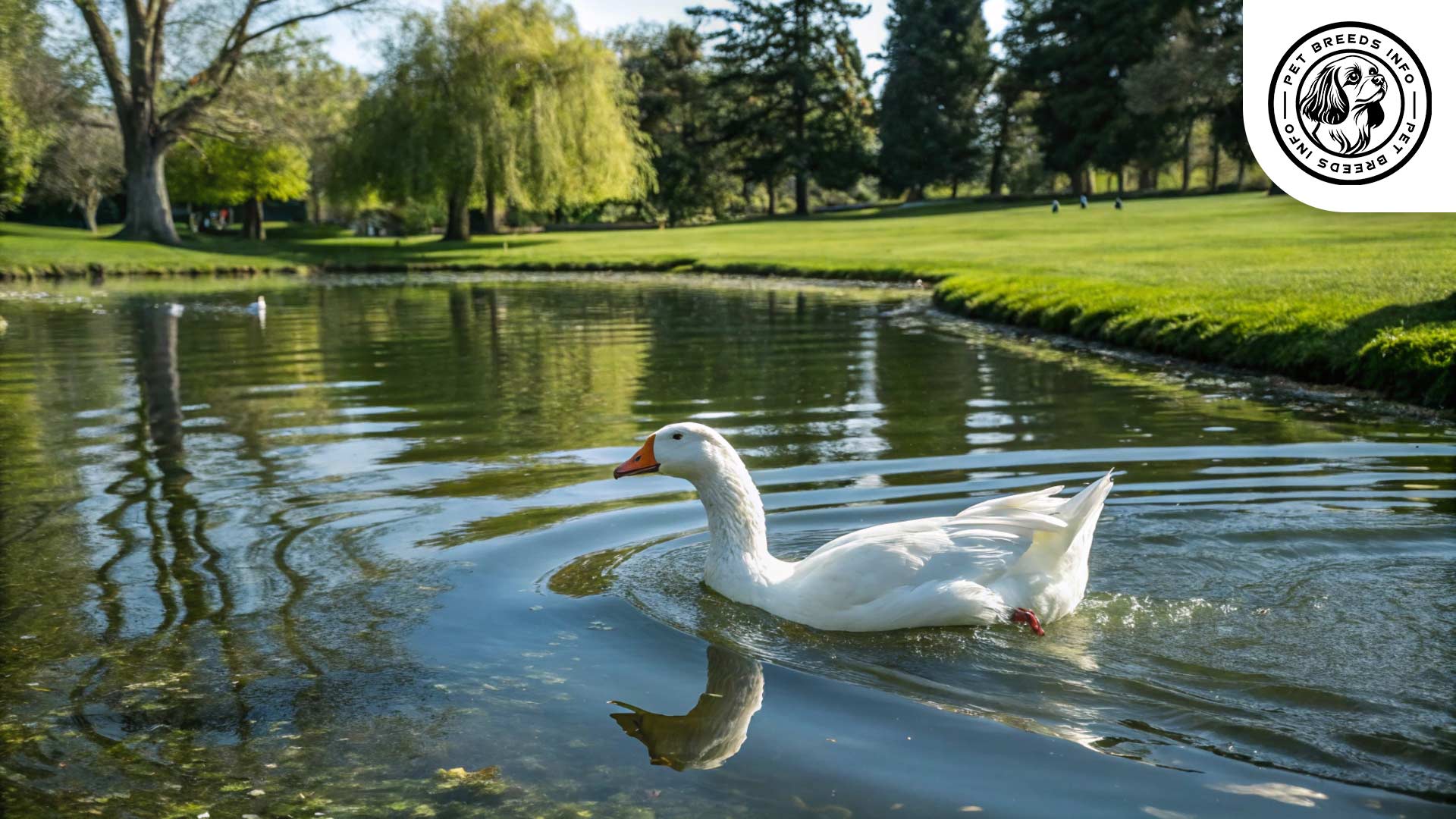
Their plumage is entirely white, with smooth and dense feathers that provide insulation. They have blue eyes, adding to their striking appearance.
Their beak is orange, broad, and sturdy, while their legs and webbed feet share the same bright orange color. The tail is short and held slightly upward.
Due to their large size, they have a strong and muscular build, making them excellent for meat production.
Read More: Canadian Goose
Personality and Temperament
The Emden Goose is known for its intelligence and strong memory. They can recognize their caretakers and surroundings effectively.
They are generally calm but can become territorial, especially during the breeding season. They have a moderate energy level and enjoy grazing on grass throughout the day.
They form strong bonds with their owners and can recognize and interact positively with familiar humans.
Emden Geese are social and do well in flocks. However, they can be wary of strangers and serve as good watchdogs due to their loud honking.
They are highly adaptable but require a consistent routine to feel secure.
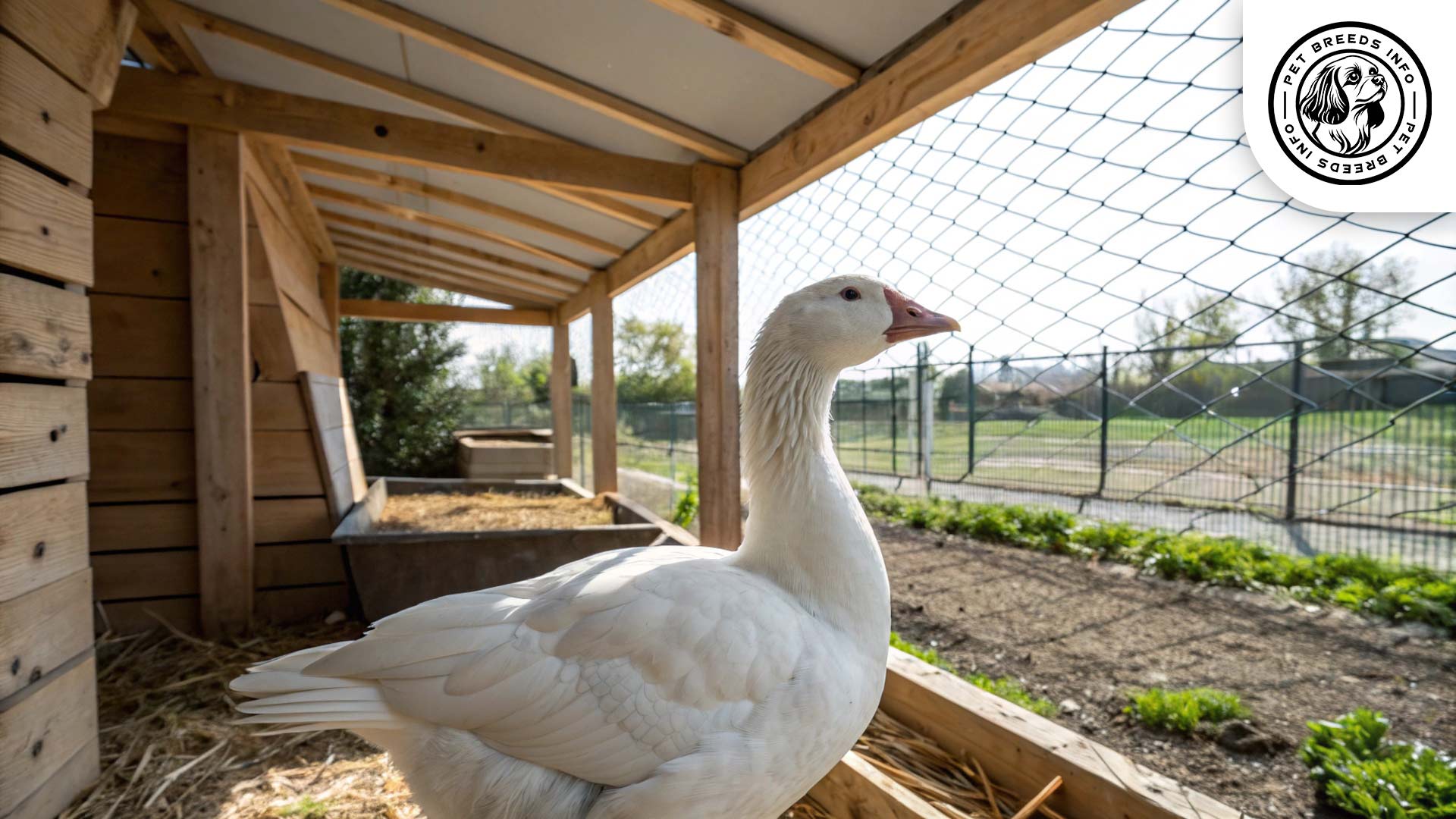
Care and Maintenance Requirements
Emden Geese need access to a spacious outdoor area with plenty of grass for foraging. They thrive best in a farm or backyard setting with access to a pond or water source.
They require minimal grooming since their feathers naturally repel dirt. However, access to water helps them maintain cleanliness.
They are hardy birds but require shelter from extreme weather conditions, especially harsh winters or excessive heat.
Basic care includes providing fresh water, safe enclosures, and protection from predators.
Diet and Nutrition
The Emden Goose thrives on a diet of fresh grass, grains, vegetables, and waterfowl pellets.
Supplementing with crushed oyster shells or grit helps with digestion and eggshell formation for breeding females.
Foods to avoid include processed human food, chocolate, avocados, and salty snacks.
Portion sizes depend on their activity levels, but continuous access to grazing land ensures proper nutrition.
Read More: Langshan Chicken
Health and Common Medical Issues
Emden Geese are generally hardy but can be prone to conditions such as bumblefoot (an infection of the foot), respiratory infections, or reproductive issues in breeding females.
They have an average lifespan of 10 to 20 years when provided with proper care.
Regular health checks, proper nutrition, and clean living conditions help in preventing diseases.
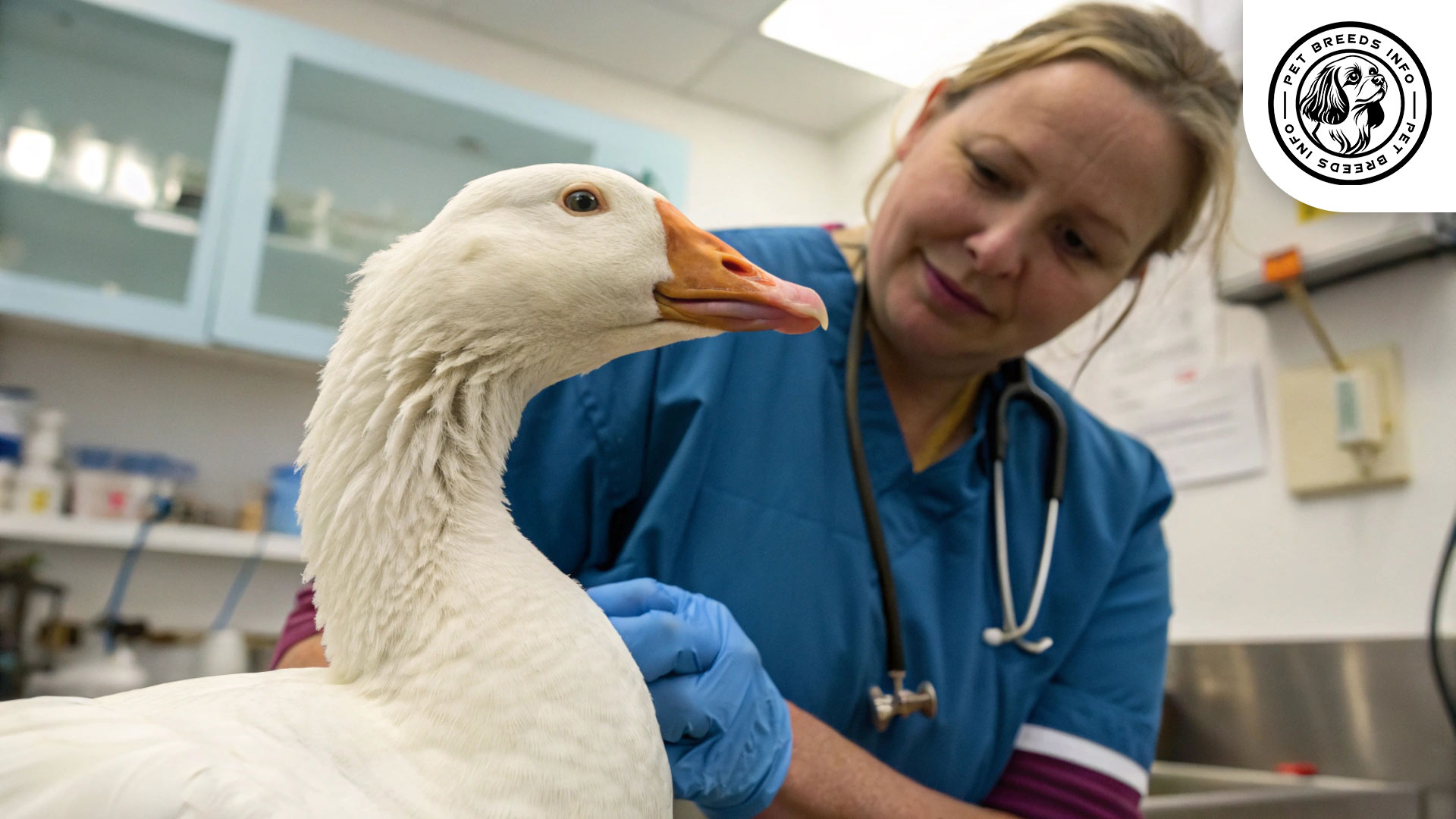
Training and Behavior Management
Training an Emden Goose involves patience and consistency. They respond well to routine and positive reinforcement.
Early handling and socialization help ensure a friendly demeanor around humans.
They can be trained to recognize specific voices and simple commands, such as responding to feeding calls.
Providing a predictable routine prevents aggressive tendencies.
Interaction with Other Animals and Humans
Emden Geese can be friendly with children when raised properly but may exhibit protective behavior if they feel threatened.
They can coexist with other geese and ducks but need enough space to avoid conflicts.
They are ideal for farms or large backyards where they can roam freely while maintaining a connection with their owners.
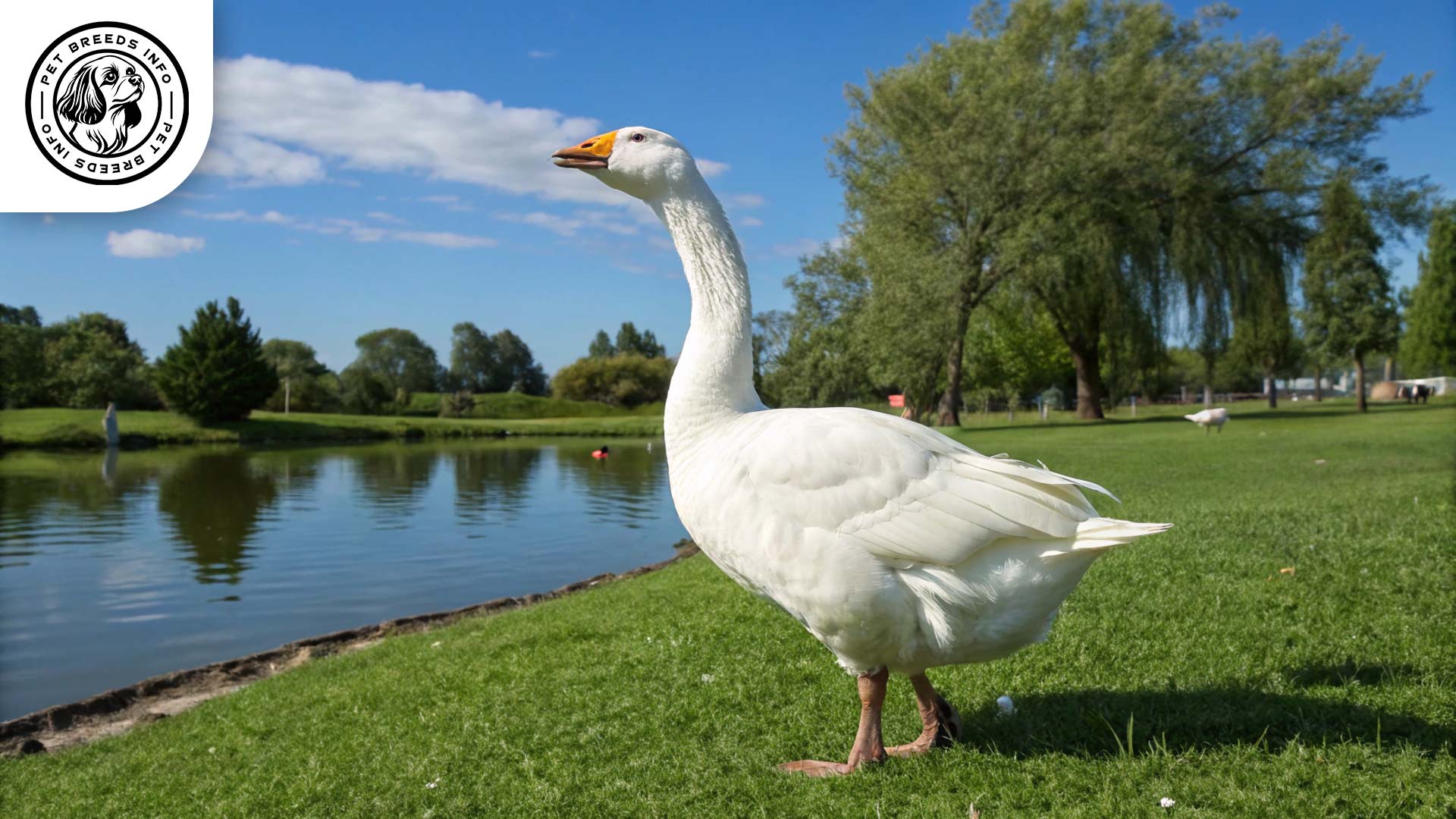
Price and Availability
The price of an Emden Goose varies based on age and location, typically ranging from $20 to $50 per gosling.
Adult geese or breeding pairs may cost more.
It is best to purchase from reputable breeders or farm suppliers to ensure healthy stock.
Adopting from farms or poultry rescue organizations is also an option for potential owners.
Conclusion and Final Thoughts
The Emden Goose is a majestic and intelligent breed, ideal for those looking for a large, hardy, and productive farm bird.
They require space, proper nutrition, and protection from predators to thrive.
With the right environment and care, they make excellent livestock birds, watchdogs, and even affectionate companions.
Potential owners should consider their space and ability to provide daily care before choosing this breed.
Read More: Egyptian Goose
FAQ
What is an Emden Goose known for?
Emden Geese are known for their large size, fast growth, excellent meat quality, and white plumage. They also make good watchdogs.
How big do Emden Geese get?
Males typically weigh between 26 to 31 pounds, and females range from 20 to 24 pounds.
What do Emden Geese eat?
They thrive on fresh grass, grains, vegetables, and waterfowl pellets.
Are Emden Geese friendly?
They can form strong bonds with their owners and are generally calm, but can be territorial, especially during breeding season, and wary of strangers.
How long do Emden Geese live?
With proper care, they have an average lifespan of 10 to 20 years.
